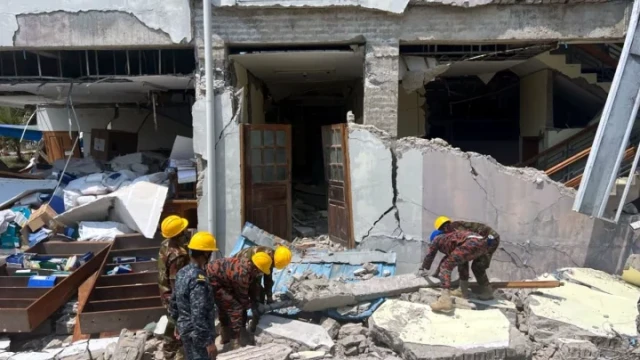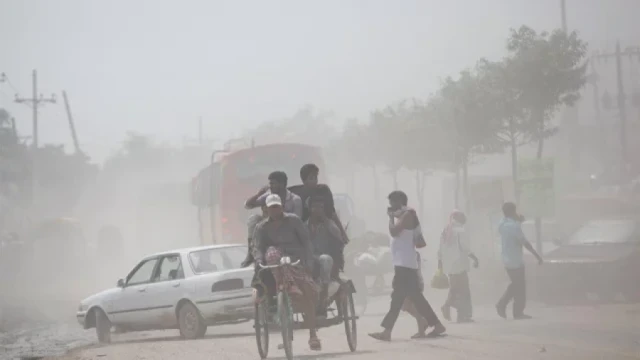New York, April 6 (V7N) – As the U.S. military continues to confront the realities of climate change, its ability to maintain operational readiness is increasingly at risk. Military bases, particularly those located on the U.S. East Coast, are being inundated with rising tides and flooding. The U.S. Naval Academy in Annapolis, for instance, has invested $37 million in a sea wall to combat rising sea levels, which now flood the base 30 to 40 times a year. In addition, the Air Force, Navy, and National Guard have responded to a growing number of natural disasters, such as wildfires in California, which have been exacerbated by droughts and higher-than-normal temperatures.
Despite the clear connection between climate change and national security, the Pentagon's recent stance under Secretary Pete Hegseth has raised concerns. Hegseth's dismissal of climate change initiatives and his focus on “training and warfighting” have prompted a backlash from experts who argue that climate change should be treated as a strategic security issue. The elimination of funding for climate change research and the cancellation of climate-related projects undermine years of military efforts to understand and address the security risks posed by climate change.
National security experts like Robert Young and Tom Ellison emphasize that the military is already feeling the effects of climate change. From troop training in extreme heat to the growing risk of flooding at military bases, these environmental challenges are not only affecting the readiness of U.S. forces but also putting military personnel and infrastructure in harm's way. Ellison, for instance, notes the increasing need for resilience in military installations worldwide, including the Arctic and Pacific regions.
The melting sea ice in the Arctic is opening up new frontiers of geopolitical competition, particularly with Russia, which has heavily militarized the region. In the Pacific, rising sea levels threaten low-lying nations like Kiribati and Tuvalu, which could lose their statehood due to submergence. These shifts are creating a new landscape where the U.S. military's ability to respond to humanitarian crises and natural disasters is essential for maintaining influence and alliances.
If the Pentagon continues to ignore climate change’s impact on national security, the U.S. could find itself ill-prepared to face the security challenges of the future. Experts argue that without a strategic focus on climate change, the U.S. risks falling behind in global power dynamics, particularly with rising powers like China taking advantage of opportunities in climate-vulnerable regions.
Ultimately, climate change is not just an environmental issue; it is a national security issue that demands a comprehensive response from the Department of Defense. The failure to address climate-related risks will undermine U.S. military strength, diminish its readiness to respond to global security threats, and jeopardize its long-term strategic interests. Climate resilience must remain a priority to ensure that the U.S. military is equipped to face both traditional and emerging threats in a rapidly changing world.
END/WD/SMA/NYC/






























Comment: